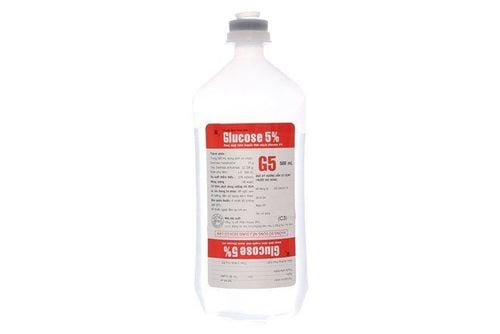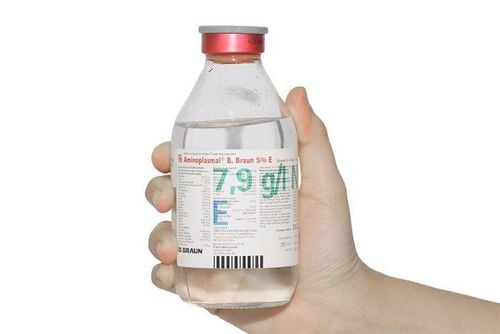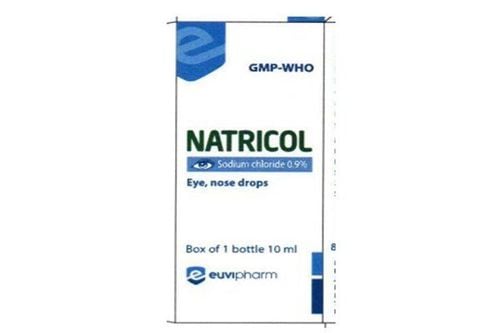This is an automatically translated article.
Too much sodium in the daily diet has been linked to blood pressure. Therefore, health organizations often recommend limiting sodium intake. Although too much sodium in the daily diet can cause health problems, reducing salt too much is not beneficial.1. Some characteristics of sodium
Sodium is an important electrolyte for the body and it is also the main ingredient in table salt. It occurs naturally in many foods and is added to others during the manufacturing process to flavor products.Although sodium is considered unhealthy, it is an essential nutrient for good health. It helps minerals create electrically charged ions in the body.
Sodium is found in most of the body as in the blood, the fluid that surrounds cells - it helps these fluids stay in balance. Along with maintaining normal fluid balance, sodium cuff plays a key role in normal nerve and muscle function.
The concentration of sodium in the body is regulated by the kidneys by regulating the amount excreted in the urine. Sometimes, sodium can also be lost through sweating.
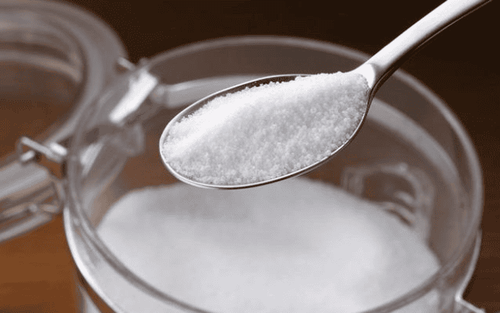
Giảm muối trong khẩu phần ăn quá nhiều sẽ có thể gây nhiều nguy cơ với sức khỏe
2. 6 little-known dangers of eating too lightly
2.1 Possible increased insulin resistance Several studies have found an association between a low-sodium diet and increased insulin resistance. Insulin resistance is when cells in the body don't respond well to signals from the insulin-secreting hormone, resulting in high insulin and blood sugar levels.Insulin resistance is believed to be the main cause of many serious diseases including type 2 diabetes and cardiovascular disease.
Another study that also investigated this association in healthy people found that insulin resistance increased after just 7 days on a bland or sodium-restricted diet.
Not all studies agree with this hypothesis. In addition, there are still studies that still do not find an association of sodium restriction or even find it reduces insulin resistance.
However, these studies often differ in duration, subjects, and limitations. So these might explain why it has inconsistent results.
2.2. There is no clear benefit for cardiovascular disease The truth is that reducing sodium in the diet can lower blood pressure. However, blood pressure is only a risk factor for disease, it is not really important or the ultimate factor in cardiovascular diseases such as heart attack or death.
Several observational studies that have looked at the effects of a low-sodium diet on heart attacks, strokes and death risk have shown that eating less than 3,000 mg of sodium per day is associated with increased risk of dying from heart disease including heart attacks and strokes.
Another study also reported a higher risk of death from heart disease at much lower sodium use than recommended.
However, the results of these studies are still conflicting. In a 2011 review, reducing sodium did not reduce the risk of dying from a heart attack or stroke, and it even increased the risk of dying from heart failure. And the issue between cardiovascular disease and sodium restriction remains unclear.
2.3. Increased risk of death from heart failure
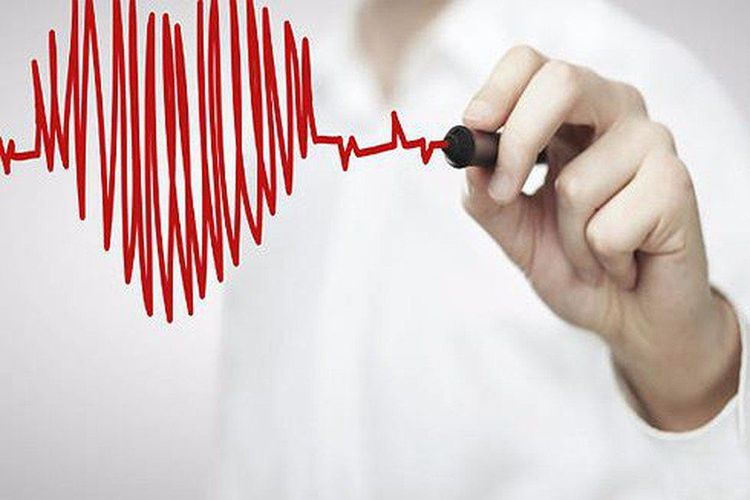
Một chế độ ăn ít muối hay hạn chế natri có liên quan đến việc tăng nguy cơ tử vong ở những người bị suy tim
A low-salt or sodium-restricted diet is associated with an increased risk of death in people with heart failure. This was found in a review study in people with heart failure, and sodium restriction increased the risk of death.
In fact, the effect was huge - people who restricted their sodium intake had a 160% higher risk of death. This association may be explained because people with heart failure are often advised to limit sodium intake. Therefore, more in-depth studies are still needed in the future to have strong evidence for this association.
2.4. May increase LDL cholesterol and triglycerides (bad fats) Many factors can increase your risk of heart disease including increased levels of LDL cholesterol and triglycerides. Some studies have found that a low-sodium diet can increase both LDL cholesterol and triglyceride levels.
In a review study in healthy people, it was found that a low sodium diet caused a 4.6% increase in LDL cholesterol and a 5.9% increase in triglycerides.
Or another recent review that reported on this relationship showed an increase in LDL cholesterol of 2.5% and triglycerides of 7%.
Furthermore, these studies have also shown that salt restriction causes only a moderate drop in blood pressure in people with high blood pressure.
2.5. Increased risk of death in people with diabetes People with diabetes have a higher risk of heart attack and stroke than other people. Therefore, there are many guidelines for these diabetics to limit their salt intake.
However, some studies have found an association between low sodium intake and an increased risk of death in people with both type 1 and type 2 diabetes. The limitation of these studies is that they are only observational studies, so their results do not have enough evidence to explain this association. In order to properly determine this relationship, more in-depth studies are needed in the future.
2.6. Higher risk of hyponatremia (low blood sodium levels)
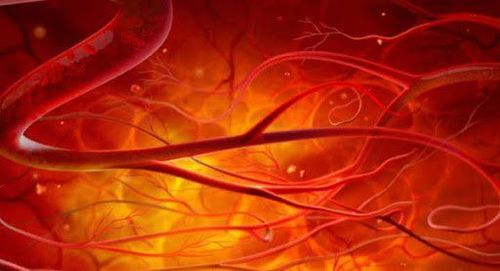
Nếu hạn chế ăn muối quá nhiều có thể sẽ gây tình trạng hạ natri máu
In the elderly, there is a higher risk of hyponatremia compared with other age groups. That's because older adults are more likely to get sick or take regular medications that can lower blood sodium levels.
Athletes, especially those participating in races that require endurance during competition, are also at increased risk of exercise-related hyponatremia. This is because they regularly drink too much water and do not compensate for the sodium lost through sweat.
The National Academy of Medicine (NAM) recommends a sodium intake of less than 2,300 mg per day, which corresponds to 5.8 grams of salt. Recent studies show that there is a J-shaped curve when it comes to the effects of sodium. Too much sodium in the diet can be harmful, but limiting sodium can also have serious consequences. However, many people can benefit from limiting sodium intake, such as those with salt-sensitive high blood pressure.
If you are a healthy person trying to stay healthy, there is no good evidence that following a low sodium diet will improve your health.
Most of the excess sodium people eat comes from processed, packaged foods - things you shouldn't be eating a lot of. So, adding a pinch of salt to your healthy foods improves their taste and is both safe and healthy - and can make your diet much more tolerable.
Vinmec International General Hospital is one of the hospitals that not only ensures professional quality with a team of leading medical doctors, modern equipment and technology, but also stands out for its examination and consultation services. comprehensive and professional medical consultation and treatment; civilized, polite, safe and sterile medical examination and treatment space. Customers when choosing to perform tests here can be completely assured of the accuracy of test results.
Please dial HOTLINE for more information or register for an appointment HERE. Download MyVinmec app to make appointments faster and to manage your bookings easily.
Article referenced source: healthline.com



